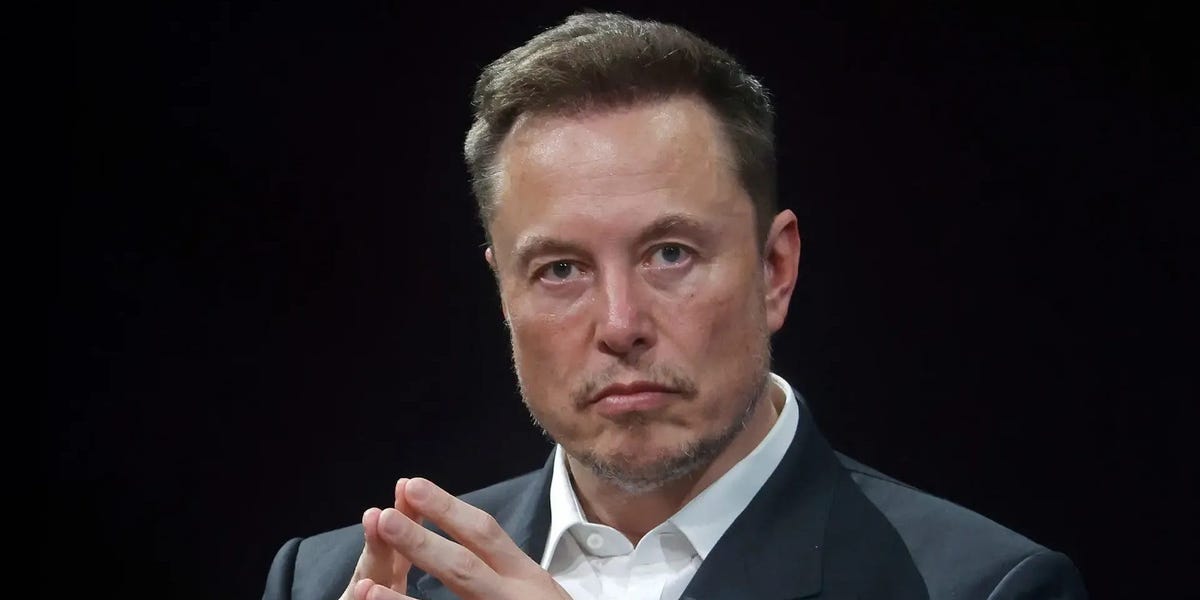- Elon Musk’s predictions for achieving his goals often don’t stack up, his biographer said.
- Walter Isaacson made the comments during a recent appearance on the “Diary of a CEO” podcast.
- The author cited three examples of when Musk’s been wrong about the timing of achieving goals.
Elon Musk’s biographer said the Tesla CEO and X owner is “always wrong” regarding how swiftly he can realize his ambitions.
Walter Isaacson recently appeared on the “Diary of a CEO” podcast and discussed Musk’s goal to send humans to Mars.
“I think he wakes up all the time calculating that he’s 52 or 53 years old and maybe he’s got 30 years. Not that he necessarily wants to go to Mars, but he wants a mission to Mars,” Isaacson said.
He added, “He believes it’ll be within 10 years but he’s always wrong by two or three times — how fast self-driving will be; how fast the Cybertruck will be made; how fast we will get to Mars. I think in 30 years, there’ll be missions to Mars. In 10 years, it’s unlikely.”
subscribers.
Become an Insider
and start reading now.
Have an account? .
Musk told Fortune in 2015 that fully autonomous vehicles would be ready by about 2017.
“We’re going to end up with complete autonomy, and I think we will have complete autonomy in approximately two years,” he said during the interview, adding that regulatory challenges could cause delays.
Tesla launched its driver-assistance system, Autopilot, in a software update in 2015. The system helps drivers drive, parallel park, steer, and change lanes. However, the full self-driving feature still requires human supervision.
Tesla recently recalled 2 million vehicles for a software fix. It followed a two-year investigation by the National Highway Traffic Safety Administration into the technology related to a series of fatal incidents involving the EV.
Musk unveiled a prototype for Tesla’s Cybertruck in 2019. Its production has been delayed numerous times since it was announced.
In an interview with Automotive News in 2020, Musk said it would start production the following year, but then said in an investor call in 2021, it would be the following year. It eventually started deliveries on November 30 this year.
Musk also once set an “aspirational” timeline for a manned mission to Mars launch by 2022 through his aerospace company SpaceX. In 2017, he said it could happen by 2024. But last month, SpaceX’s Starship mega-rocket exploded for the second time, although it came within seconds of completing the launch.
Representatives for Elon Musk didn’t immediately respond to Business Insider’s request for comment, made outside of normal working hours.
Read the full article here





